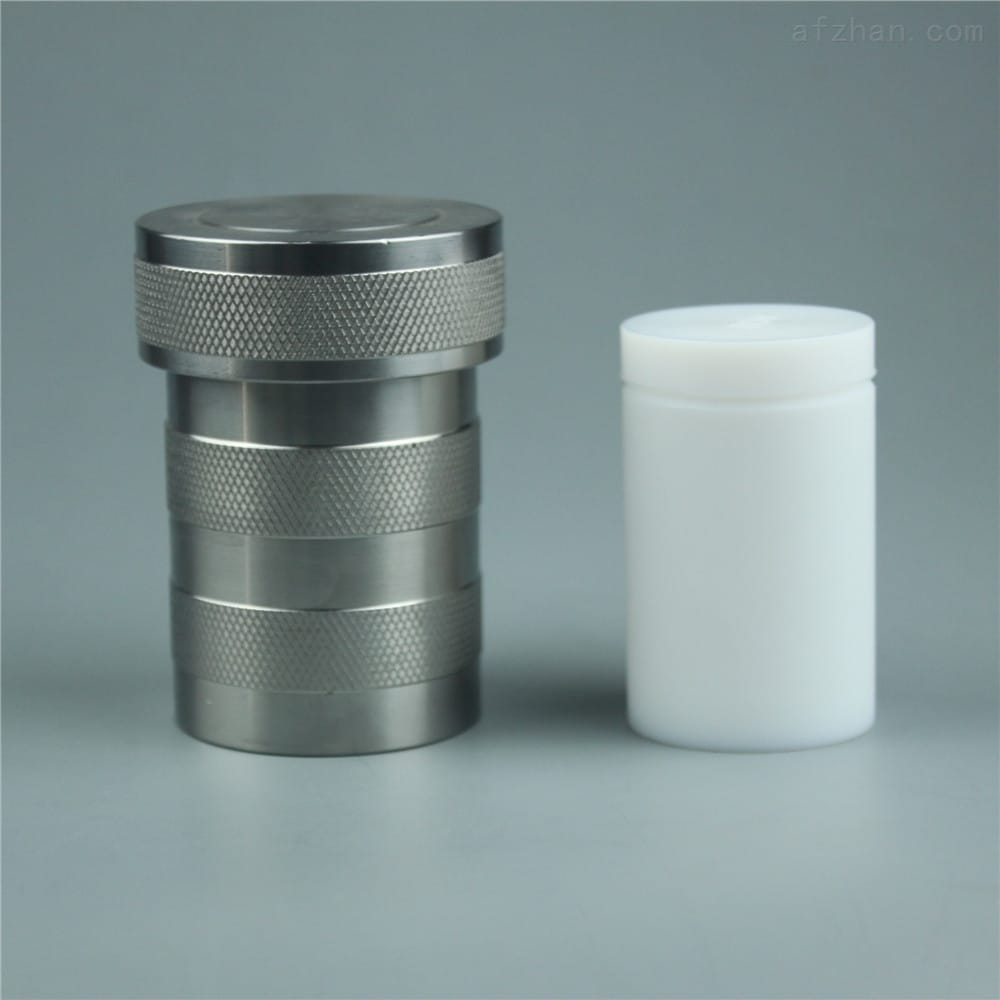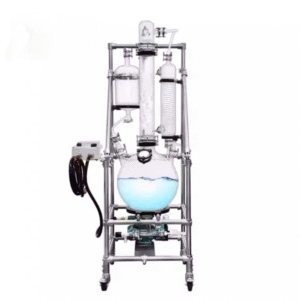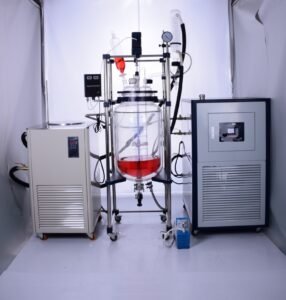Understanding the Features and Applications of the PTFE-lined Hydrothermal Autoclave in Scientific Research
The PTFE-lined hydrothermal autoclave is an indispensable tool for conducting high-pressure and high-temperature reactions in laboratory settings. Whether for the synthesis of nanomaterials, catalytic reactions, or other complex chemical processes, this autoclave provides the precise environment needed for experiments requiring controlled thermal and pressure conditions. EquilRxnLab offers a range of PTFE-lined hydrothermal autoclaves, designed to meet the rigorous demands of modern scientific research.

What is a PTFE-lined Hydrothermal Autoclave?
A PTFE-lined hydrothermal autoclave is a pressure vessel used to perform chemical reactions under controlled temperature and pressure conditions. It is especially useful for reactions that require the synthesis of materials at high temperatures, typically ranging from ambient to 220°C, and under elevated pressure up to 3 MPa. These autoclaves are typically constructed from durable materials like stainless steel, with a PTFE liner inside to prevent corrosion and to ensure compatibility with various chemicals, making them ideal for a range of applications.
The PTFE liner is crucial because it protects the autoclave from corrosive substances that can damage the stainless steel body. The combination of stainless steel and PTFE provides durability, strength, and resistance to harsh chemicals, ensuring the autoclave can be used in demanding environments.
Key Features of the PTFE-lined Hydrothermal Autoclave
- Versatile Volume Options:
The PTFE-lined hydrothermal autoclave is available in a wide range of volumes, from 5 ml to 500 ml. This allows users to select the appropriate size for their experiments, whether for small-scale reactions or larger sample preparations. The variety of volume options makes it a versatile choice for laboratories with different research needs. - High Maximum Temperature:
The autoclave can withstand temperatures up to 220°C, enabling researchers to perform reactions that require high heat. This temperature range is suitable for a variety of hydrothermal and other high-temperature reactions, including material synthesis and crystallization. - Pressure Resistance:
The autoclave is designed to safely operate under pressures up to 3 MPa. This feature is critical for reactions that require elevated pressure, such as those used in material synthesis, polymerization processes, and catalyst development. - PTFE Liner for Chemical Resistance:
The PTFE liner inside the autoclave provides an inert and non-reactive surface, preventing corrosion from aggressive chemicals and enhancing the durability of the autoclave. This feature is especially important when working with highly reactive or corrosive substances, as it ensures that the autoclave remains in good condition over time. - Easy Sealing Mechanism:
The autoclave features a screw cap with a manual clamping mechanism, ensuring a secure seal during operation. This reliable sealing method minimizes the risk of leaks and ensures that the internal pressure is maintained throughout the experiment. - Durable Construction:
The body of the autoclave is made from 304 stainless steel, providing a sturdy and corrosion-resistant exterior. This ensures that the autoclave can withstand repeated use in high-pressure and high-temperature environments, maintaining its integrity over time.
Applications of the PTFE-lined Hydrothermal Autoclave
The PTFE-lined hydrothermal autoclave is widely used in various research and industrial applications where precise control of temperature and pressure is required. Some of the most common applications include:
1. Nanomaterial Synthesis
Hydrothermal autoclaves are frequently used in the synthesis of nanomaterials, including nanoparticles, nanotubes, and nanowires. By controlling the temperature and pressure, researchers can promote the growth of nanostructures with specific properties. The PTFE-lined hydrothermal autoclave provides a stable environment to facilitate the formation of high-quality nanomaterials.
2. Catalysis Research
In catalytic reaction studies, the PTFE-lined hydrothermal autoclave allows researchers to investigate the effects of pressure and temperature on catalytic processes. The ability to control both parameters precisely makes it an ideal tool for developing new catalysts and optimizing reaction conditions.
3. Material Science
The PTFE-lined hydrothermal autoclave is commonly used in material science to explore new materials, including semiconductors, polymers, and ceramics. The controlled reaction conditions inside the autoclave enable researchers to synthesize novel materials with unique properties that can be used in a variety of applications, from electronics to coatings.
4. Crystallization Studies
In crystallography and solid-state chemistry, the PTFE-lined hydrothermal autoclave is used to promote the crystallization of compounds under specific temperature and pressure conditions. This is essential for studying the structural properties of various materials and compounds.
5. Pharmaceutical Applications
The autoclave is also used in the pharmaceutical industry for drug formulation, stability testing, and other processes that require controlled conditions. By maintaining the correct temperature and pressure, researchers can ensure the quality and consistency of pharmaceutical products.
Why Choose a PTFE-lined Hydrothermal Autoclave?
- Reliable Performance: The PTFE-lined hydrothermal autoclave is designed for long-term, reliable performance in demanding conditions. Whether you are working with high-temperature reactions or corrosive substances, this autoclave ensures that your experiments run smoothly.
- Customizable Options: With a range of volume sizes, the PTFE-lined hydrothermal autoclave can be tailored to fit specific experimental needs. This flexibility makes it a valuable tool for laboratories of all sizes.
- Safety: The autoclave’s secure sealing mechanism, combined with its high pressure and temperature resistance, ensures safe operation even in high-stress conditions. Researchers can conduct experiments with confidence, knowing that the equipment will perform reliably.
- Durability: The use of high-quality materials such as 304 stainless steel and PTFE ensures that the autoclave will maintain its performance over time, even in harsh environments.
Where to Buy the PTFE-lined Hydrothermal Autoclave
To learn more about the PTFE-lined hydrothermal autoclave and explore its features and specifications, visit EquilRxnLab’s product page. You can find additional information on available models, volume options, and more.
For any inquiries or technical support, feel free to contact us.
Stay connected with EquilRxnLab on social media:
For a complete list of products, explore our catalog.




